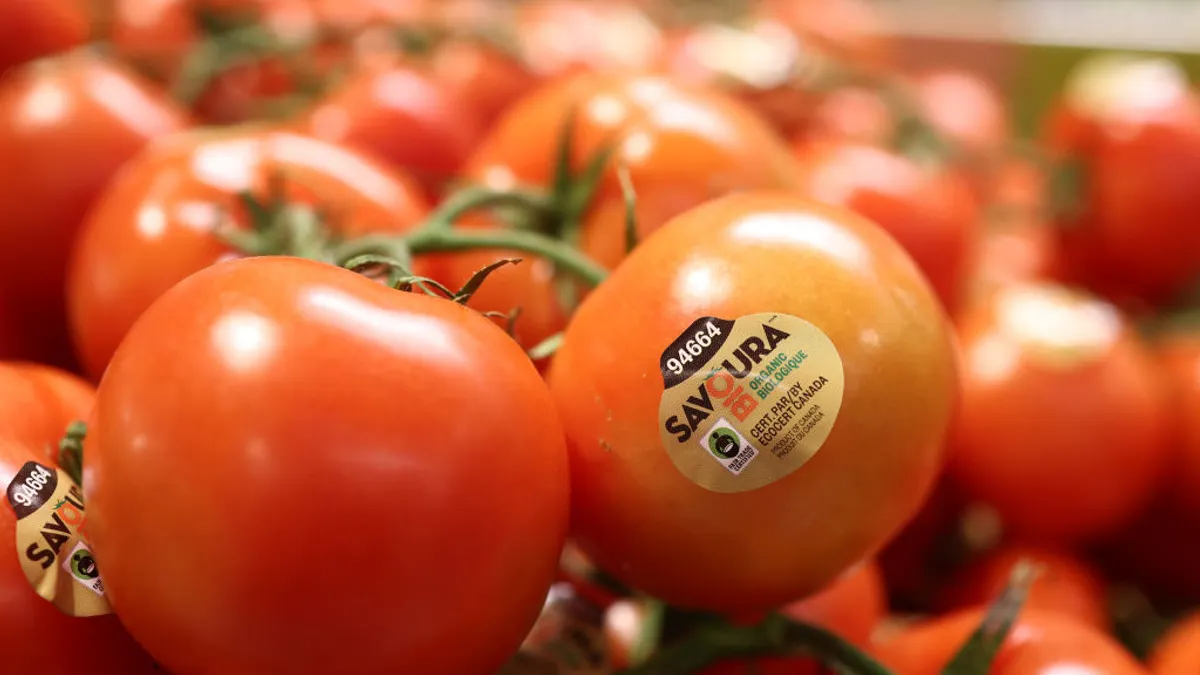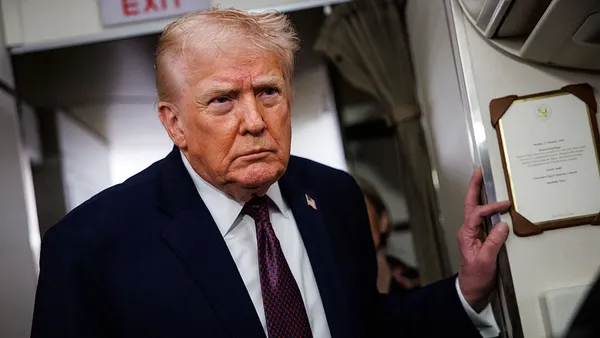Dive Brief:
- The U.S. is imposing a 17.09% import duty on tomatoes from Mexico after terminating a 2019 agreement that suspended the antidumping levy, the Commerce Department said in a July 14 press release.
- The duty is calculated to reflect the percentage by which tomatoes from Mexico have been sold in the U.S. at unfair prices, the department said.
- “Mexico remains one of our greatest allies, but for far too long our farmers have been crushed by unfair trade practices that undercut pricing on produce like tomatoes. That ends today,” Commerce Secretary Howard Lutnick said in the release.
Dive Insight:
Reaction has been mixed to the new tariff on Mexico’s tomato imports, which accounted for 90% to 93% of the fresh tomatoes sent to the U.S. since 2015, according to an April 2025 economic impact analysis by Texas A&M AgriLife Research.
Mexico's ministries of Economy and Agriculture called the Trump administration's action "unfair and against the interests not only of Mexican producers, but also of the U.S. industry."
"The traction fresh tomatoes have gained in the U.S. is derived from the quality of the product, and not from any unfair practices," the agencies said in Spanish in a Tuesday press release.
The ministries plan to continue negotiations with the U.S. government and appeared optimistic that the duty would be suspended. "As on previous occasions when there was a dispute, Mexico will know how to find a solution and reason will prevail," the agencies said.
Jaime Chamberlain, president and owner of Arizona-based Chamberlain Distributing, a produce wholesaler and distributor that works exclusively with growers from Mexico, said distributors will pay the latest duty if they are the importer of record.
"You're laying out a considerable amount of money before you even sell the product," Chamberlain told Supply Chain Dive.
Chamberlain's company cannot switch sourcing to U.S. producers, he said. The produce distributor has invested millions of dollars in Mexico in tomato-growing infrastructure, such as shade houses, drip irrigation technology, wells, reservoirs, desalination plants, and packing equipment.
"There are distributors that distribute domestic product, and then there are distributors that distribute imported product, right? Our specialty is right here on the border," he said.
Spreading the additional tariff cost across distributors, wholesalers and grocery chains is possible, but not guaranteed, Chamberlain said. "The uncertainty, and for farming and in agriculture, is our greatest enemy."
Some distributors could get tomatoes from other countries, but they will unlikely match the volume coming from Mexico, said Lance Jungmeyer, president of the Fresh Produce Association of the Americas, which represents importers.
"You could shift a portion to Canada, shift a portion to countries in the Caribbean, but you're never going to get that sheer volume of tomatoes that are supporting the U.S. market," Jungmeyer told Supply Chain Dive.
Rep. Vern Buchanan, R-Fla., sees the agreement termination and subsequent tariffs differently. He said they protect U.S. farmers from unfair trade practices and violations of antidumping laws.
“Now, we’re putting American farmers first," Buchanan, vice chairman of the House Ways and Means Committee and a member of the Trade Subcommittee, said in a Monday press release.
The Florida Tomato Exchange, a trade association representing tomato growers and packers, echoed Buchanan's statement, calling the Trump administration's action "an enormous victory for American tomato farmers and American agriculture."
"This decision will protect hardworking American tomato growers from unfair Mexican trading practices and send a strong signal that the Trump Administration is committed to ensuring fair markets for American agriculture," Florida Tomato Exchange EVP Robert Guenther said in a statement Monday.
Since 1996, the U.S. has entered into five suspension agreements related to tomato imports from Mexico, the last one in 2019.













